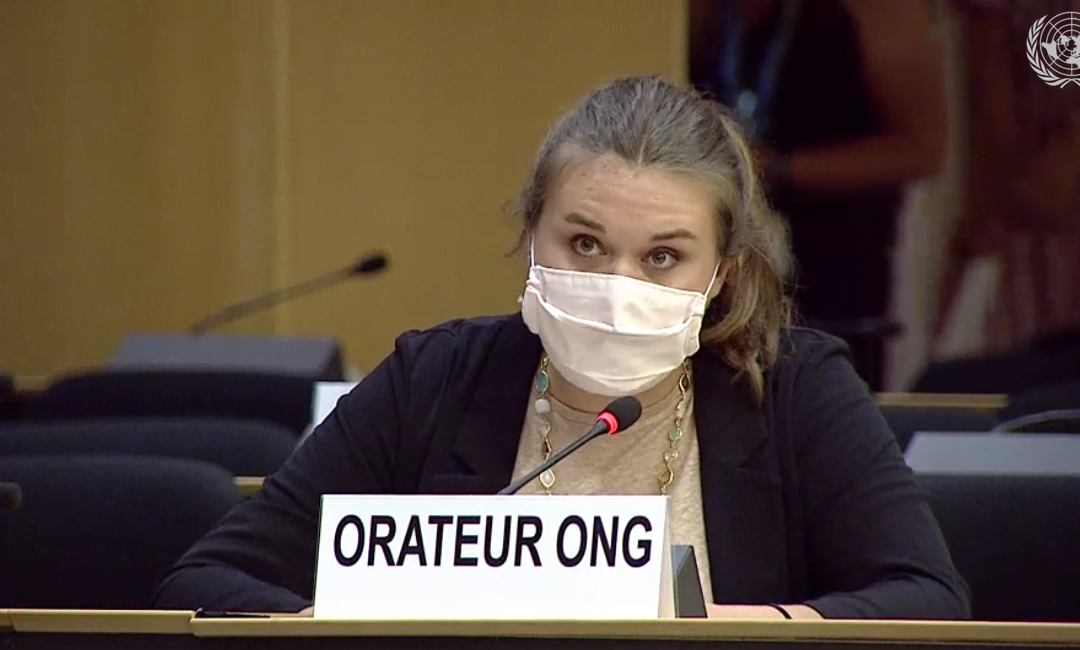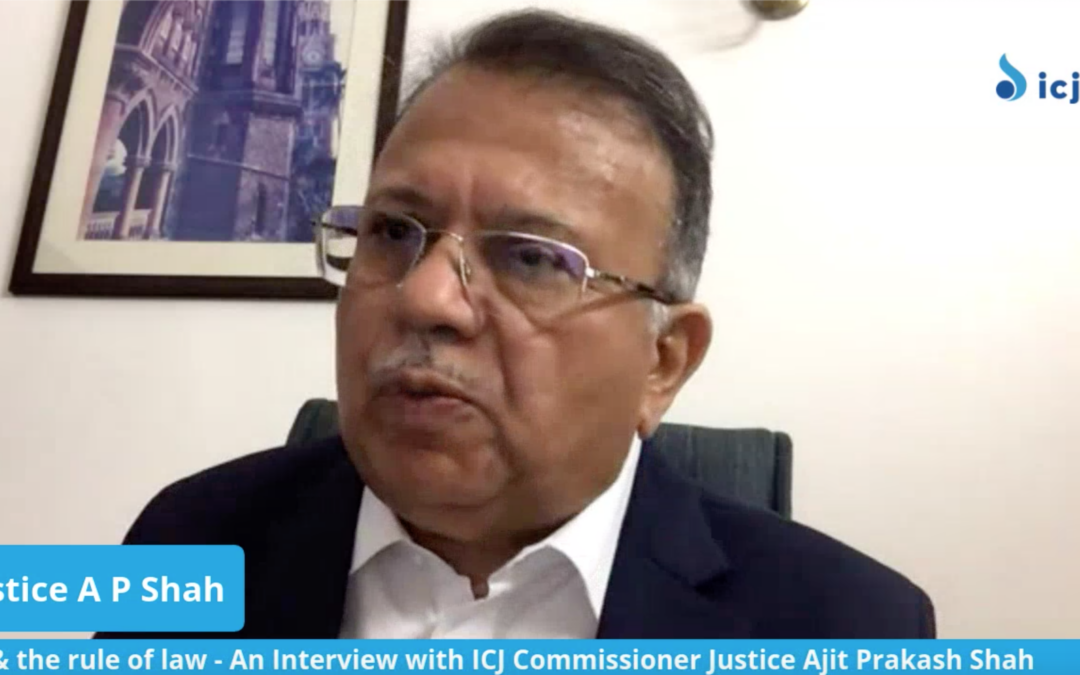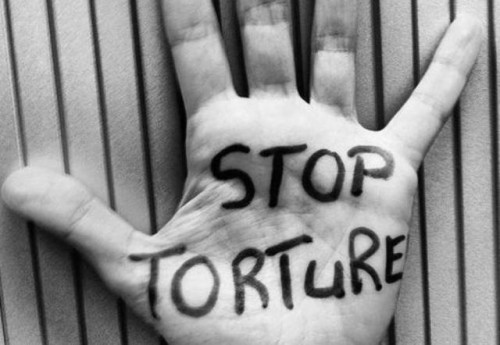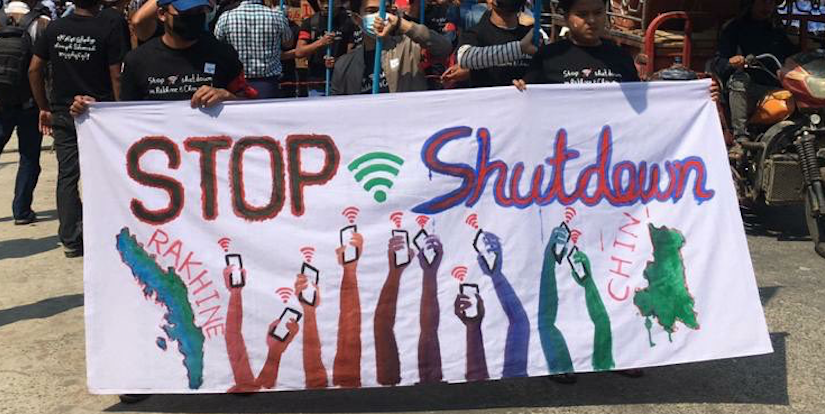
Jul 1, 2020 | News
On 30 June, the ICJ and five other organizations sent open letters to the Prime Minister of Vietnam and the European Union (EU) calling for the immediate and unconditional release of human rights defenders, Dr. Phạm Chí Dũng, Nguyễn Tường Thụy and Lê Hữu Minh Tuấn.
The ICJ, Boat People SOS, Human Rights Watch, International Federation for Human Rights, VETO! Human Rights Defenders’ Network and Vietnam Committee on Human Rights in their address to the Prime Minister, urged the Vietnamese government to cease all harassment of other activists from the Independent Journalists Association of Vietnam (IJAVN).
In November 2019, Dr. Phạm Chí Dũng, founding member and Chairman of IJAVN, was arrested in Ho Chi Minh City for allegedly “making, storing, distributing or disseminating materials” that “oppose the State” in violation of article 117 of Vietnam’s Penal Code. He has since been held in incommunicado detention.
Following Phạm’s arrest, a number of persons were subjected to various forms of harassment up to and including arrest and prosecution in connection with their IJAVN membership. In May and June 2020, two IJAVN members, journalist Nguyễn Tường Thụy and law student Lê Hữu Minh Tuấn, were arrested in Hanoi and Quang Nam provinces on similar charges.
In their letters, the ICJ and other organizations raised concerns that Phạm had been targeted and arrested for his human rights advocacy. From 2013 till his arrest, Phạm wrote independently on key rights issues in Vietnam, including on freedom of expression, labour rights, detention of human rights defenders, and harassment of independent civil society. In July 2012, he was arbitrarily arrested under charges of “conducting propaganda against the State” and released in February 2013 after months in prison without trial. In 2014, he was prevented by Vietnamese authorities from travelling to Geneva to participate in a United Nations Human Rights Council side-event connected to the Universal Periodic Review of Vietnam, following which his passport was confiscated.
The organizations noted that the arrest and arbitrary detention of Phạm, Nguyễn Tường Thụy and Lê Hữu Minh Tuấn contravened article 19 of the International Covenant on Civil and Political Rights (ICCPR) which guarantees the right to freedom of expression, as they appeared to have been politically motivated to curtail the rights of the three individuals to freely express their opinions and share information relating to domestic affairs.
In a 2019 ICJ report on freedom of expression and information online across Southeast Asia, national security-related provisions in Vietnam’s Penal Code, including article 117, were shown to have often been abused to curtail free speech and access to information online.
The organizations further noted that the prolonged incommunicado detention of Phạm constituted a violation of the prohibition on torture and other ill-treatment, the right to liberty and the right to be treated with dignity under articles 7, 9 and 10 of the ICCPR.
They further called on Vietnam to protect and facilitate the work of human rights defenders in line with the UN Declaration on the Right and Responsibility of Individuals, Groups and Organs of Society to Promote and Protect Universally Recognized Human Rights and Fundamental Freedoms (Human Rights Defenders Declaration).
The letter to the Prime Minister of Vietnam by the ICJ, Human Rights Watch and VETO! Human Rights Defenders’ Network is available here.
The letter to the European Union by the ICJ, Boat People SOS, Human Rights Watch, International Federation for Human Rights, VETO! Human Rights Defenders’ Network and Vietnam Committee on Human Rights is available here.
Contact
Frederick Rawski, ICJ Asia and Pacific Regional Director, e: frederick.rawski(a)icj.org
See also
ICJ, ‘Dictating the Internet: Curtailing Free Expression, Opinion and Information Online in Southeast Asia’, December 2019

Jun 30, 2020 | Advocacy, Non-legal submissions
Speaking at the UN Human Rights Council today, the ICJ urged action on longstanding and pervasive impunity for human rights violations in the Philippines and highlighted new threats posed by a pending new counter-terrorism law.
The oral statement, delivered in an interactive debate on the human rights situation in the Philippines based on a report prepared by the High Commissioner for Human Rights, read as follows:
“Madame President,
The International Commission of Jurists (ICJ) concurs with the High Commissioner’s finding that overemphasis by the Government of the Philippines on national security and public order has led to serious human rights violations (A/HRC/44/22, para 12). Such violations will only increase if the draft Anti-Terrorism Act is approved and implemented.
The draft law would, for example, allows detention without judicial warrant for up to twenty-four days. Such prolonged pretrial detention without judicial review This is inconsistent with the prohibition of arbitrary detention under the International Covenant on Civil and Political Rights (ICCPR), and the right under the ICCPR of anyone arrested or detained on criminal grounds to be brought promptly before a judge. The Human Rights Committee has stressed that such judicial control of initial detention periods is not only essential to guarantee the right to liberty but also to prevent torture, other ill-treatment, and enforced disappearance.
In line with both the High Commissioner’s report and the 25 June 2020 statement by a large number of Special Procedures, the ICJ urges the Government of the Philippines to accept the findings and recommendations and rapidly implement corrective measures, in cooperation with the OHCHR, civil society, and the Commission on Human Rights, and to abandon or fundamentally revise the draft Anti-Terror Law. In the absence of clear, effective and measurable progress on accountability at the national level, this Council must stand ready to establish an independent international investigation (para 88(iii)).
Thank you.”

Jun 30, 2020 | Multimedia items, News, Video clips
In a wide-ranging interview recorded on June 4 2020, ICJ Commissioner and former Chief Justice of the High Court of Delhi, Ajit Prakash Shah, called on the Indian judiciary to exercise its responsibility to protect peoples’ human rights and “reprise its role as protector of Indian people” in the context of the Covid-19 epidemic.
In April and May 2020, the Indian Supreme Court dismissed several petitions and applications concerning the rights of internal migrant workers.
These included petitions demanding that migrant workers be moved to shelter homes and provided with basic needs and that payment of minimum wages be made to all migrant workers for the lockdown period.
The Court was also requested to direct the District Magistrates to identify those who are walking and ensure that they are provided with shelter and food and reach their destination, following the death of 16 internal migrant workers killed while sleeping on railway tracks while on their way back to their hometowns.
Finally, on 26 May 2020 the Court took suo moto cognizance of their predicament and, on 28 May 2020 ordered the Government to: register internal migrant workers; provide internal migrant workers free transportation home; and provide internal migrant workers with shelter, food, and water until they reach their homes.
This action was followed by another order on 9 June by which the Court ordered that: internal migrant workers are identified and sent to their hometowns within 15 days; and that all cases registered against those who had allegedly violated COVID-19 lockdown orders be considered for withdrawal.
In the interview, Justice Shah accented, in particular, the role of the Indian judiciary “as protector of Indian people” in respect of marginalized and disadvantaged people, including people living in poverty.
In addressing the question about internal migrant workers who were stranded during the recent COVID-19 lockdown, Justice Shah observed that for two months (March 24 2020 – May 28 2020) between the initiation of the lockdown and the rulings of the Supreme Court the Court appeared to have “remained skeptical” and in “denial” about petitions filed seeking redress for internal migrant workers.
Speaking in this context, Justice Shah reminded the Indian judiciary that Indian courts have historically been at “the forefront of giving effect to India’s international legal obligations,” including its economic, social, and cultural rights obligations encapsulated in International Covenant on Economic, Social and Cultural Rights.
They had done so in landmark cases such as PUCL v. UOI (in which it held that the right to life with dignity includes a right to food and a right to be free from hunger and starvation) and Chameli Singh v. UOI (in which it held that right to shelter includes adequate living space includes light, air, water, civil amenities, and sanitation).
While commending the Courts interventions in May 2020, Justice Shah pointed out that their lateness to react was damaging.
“Courts should have intervened earlier. They could have monitored the process of the return of the migrants to their home states and ensured basic wages were fixed and delivered.”
Justice Shah expressed hope that the 28 May 2020 order represented a turning point:
“Hopefully, going forward, the Court will act in the same spirit … to grant some reliefs to suffering migrant communities. In the future, the Court should take the lead and monitor these processes, serving as a guide to both the center and the state authorities and the bureaucracy for addressing these issues.”
Commenting on the role of lawyers during the COVID-19 crisis, Justice Shah expressed concern that law officers were castigating lawyers for approaching courts with petitions.
Watch the video
Additional Reading
- Briefing Papers
- India on the Brink of Hunger Crisis during COVID-19 Pandemic
- The Right to Water in India and the COVID 19 Crisis
- COVID-19 Pandemic Exposes India’s Housing Crisis
- Press Release: COVID-19: Indian authorities must act immediately to protect internal migrant workers stranded under intolerable conditions
Download (with additional information)
India-Justice-Shah-Interview-Web-Story-2020-ENG (PDF)

Jun 26, 2020 | News
On the occasion of the International Day in Support of Victims of Torture, the ICJ, Advocacy Forum (AF) and Terai Human Rights Defenders Alliance (THRD Alliance) voiced concerns about the near total failure by authorities to investigate and prosecute acts of torture in Nepal.
Nearly two years after provisions in the new Penal Code that criminalized torture came into effect, not a single torture prosecution appears to have been brought. There have also been very few instances in which victims have received an effective remedy and reparation for their ill-treatment. Nepal has failed to meet its obligations in this regard under article 2(3) of the International Covenant of Civil and Political Rights and article 14 of the Convention Against Torture.
“Nepal has an obligation under international law to hold perpetrators accountable for acts of torture and cruel, inhuman or degrading treatment. This includes obligations as a party to the Convention Against Torture and the international Covenant on Civil and Political Rights,” said Frederick Rawski, ICJ Asia-Pacific Director. “It is disturbing to see that two years after the rightfully celebrated Penal Code provisions criminalizing torture have come into effect, the government has yet to successfully prosecute any acts of torture, which by all accounts continue to occur on a frequent basis.”
The Advocacy Forum and THRD Alliance both published reports today that document instances of torture and other ill-treatment against detainees over the past year. Some 20 percent of the more than 1000 detainees interviewed reported some form of unlawful ill-treatment during confinement.
“Although in some locations there appears to be some improvement in the treatment of detainees, torture and ill-treatment remains far too prevalent,” said Om Prakash Sen Thakuri, Advocacy Forum Executive Director. “Police still continue to rely on “confessions”, typically obtained by ill-treatment or coercion during interrogation, as opposed to conducting proper investigations. Our police institutions need serious reform to ensure that investigative practices conform to international law and standards.”
In a separate report analyzing the obstacles faced by victims in seeking justice for torture and ill-treatment, the THRD Alliance documented the complex challenges faced by torture survivors seeking accountability in the formal justice system. These obstacles included a frequently refusal by police to file a First Information Report on allegations of ill-treatment, statutes of limitation preventing cases from being prosecuted, and a lack of independence of police investigations in the rare cases when they do move forward.
“Despite repeated public commitments by justice sector and human rights institutions, such as the National Human Rights Commission and the Office of the Attorney General, torture survivors still struggle to have their voices heard or have their cases addressed,” said Mohan Karna, Executive Director of the THRD Alliance. “We urge the authorities at both the federal and provincial levels to take action to address the concerns of victims and to institute policies – such as establishing robust detention monitoring and internal accountability mechanisms – that will deter future acts of torture and ill-treatment.”
On the occasion of the International Day in Support of Victims of Torture, the three organizations urged the Government of Nepal to:
- Carry out prompt, thorough, impartial and effective investigations into all allegations of torture and ill-treatment, and to bring prosecutions where warranted under the criminal provisions of the Penal Code.
- Institute structural reform within the police including the establishment of a separate and independent mechanism to investigate allegations of torture and ill-treatment involving police personnel.
- Ensure public availability statistics on the investigation, prosecution and other action taken in response to allegations of torture and ill-treatment.
- Amend the Penal Code and other relevant provisions of law to eliminate the statute of limitations in torture cases, and to ensure that the definition of torture is in line with international law.
- Establish an independent preventative mechanism for monitoring of detention centers.
- Become party to the Optional Protocol of the Convention on Torture
Background
International Day in Support of Victims of Torture is marked worldwide on 26 June every year. Under the International Covenant on Civil and Political Rights (ICCPR) and Convention against Torture and Other Cruel, Inhuman or Degrading Treatment or Punishment (CAT), to which by Nepal is a party, the authorities to investigate, prosecute, punish and provide effective remedies and reparation for the crimes of torture and other acts of ill-treatment.
The Penal Code criminalizing torture came into force in August 2018. While it was welcome as positive step, the provisions fall short of international standards in a number of respects, including failure to recognize the continuous nature of the crime of enforced disappearance or its status as a crime against humanity; an unacceptably brief six-month limitation period to file complaints; and penalties incommensurate with the gravity of the crimes.
Download
Nepali (PDF)
English (PDF)
Contact
Frederick Rawski, ICJ Asia-Pacific Director, e: frederick.rawski@icj.org, t: +66 644781121
Om Prakash Shen Thakuri, AF, Executive Director, e: opsenthakuri@gmail.com, t: +977 9841275732
Mohan Karna, THRD Alliance, Executive Director, e: karnamohan90@gmail.com, t: +977 9841449139

Jun 20, 2020 | News
As the general internet shutdown in Rakhine and Chin states reaches one year, the ICJ repeated its call for the Myanmar Government to end mobile internet restrictions and temporarily halt hostilities with the Arakan Army.
The ICJ also called for an amendment of Section 77 of the Telecommunications Act, pursuant to which the government can order telecommunications providers to suspend internet services.
“The internet shutdown in Rakhine and Chin states stifles freedom of expression, prevents information-sharing, and exacerbates the plight of affected communities by impeding humanitarian and health access during a global pandemic,” said Frederick Rawski, ICJ Asia-Pacific Director. “Such a drastic measure is disproportionate and unnecessary. The government should focus on fighting COVID-19, instead of waging a battle against its own population.
The shutdown was first imposed on 21 June 2019 by the Ministry of Transport and Communications (MOTC), purportedly to facilitate government objectives in the armed conflict with the Arakan Army.
Section 77 of the Telecommunications Law authorizes the the MOTC to “direct the licensee to suspend a Telecommunications Service, to intercept, not to operate any specific form of communication, to obtain necessary information and communications, and to temporarily control the Telecommunications Service and Telecommunications Equipments” in the event of an “emergency situation” for the “public interest.” However, the law does not define the scope of an “emergency situation.” The ICJ previously described Section 77 to be vague, and warned of abuse by authorities in the absence of independent judicial oversight by civilian courts.
In April, as Myanmar encountered its initial cases of COVID-19, the ICJ highlighted how arbitrary and unnecessary online media restrictions not only violate a person’s right to freedom of expression and information, but also deny access by affected communities to essential health information. Access to health information is a component of the right to health protected under the International Covenant on Economic, Social and Cultural Rights (ICESCR), to which Myanmar is a party.
“The internet shutdown effectively deprives large swathes of the population in ethnic minority states of the benefits of government services, and information about its COVID-19 response,” said Frederick Rawski. “Such a blanket internet shutdown is not necessary for reasons of national security, and undermines the government’s own public health efforts.”
The ICJ recalled that the ICESCR requires States to observe the principle of non-discrimination in enacting measures to protect the right to health. The internet shutdown clearly has a disproportionately adverse impact on the human rights of members of ethnic minorities.
Despite appeals from UN officials, rights groups, ethnic armed organizations, and ambassadors to Myanmar, the Myanmar Government still refuses to hold a ceasefire throughout the country, including areas of Rakhine and Chin states where the Arakan Army operates. The conflict has resulted in deaths, many from unlawful killings, as well as serious physical and emotional injury, and mass displacement of persons.
Download
Myanmar-Internet-Shutdown-Press-Release-2020-BUR (PDF)
Contact
Frederick Rawski, ICJ Asia-Pacific Regional Director, e: Frederick.rawski(a)icj.org
Related work
Publication: Myanmar’s ongoing Internet shutdown and hostilities threaten right to health during COVID-19
Statement: Government must lift online restrictions in conflict-affected areas to ensure access to information during COVID-19 pandemic
Report: Curtailing the Right to Freedom of Expression and Information in Myanmar








